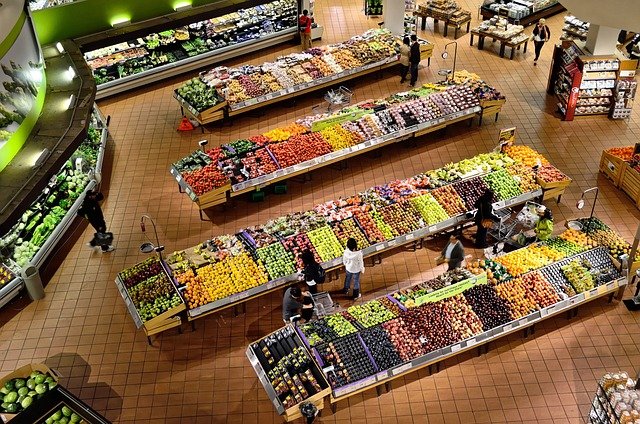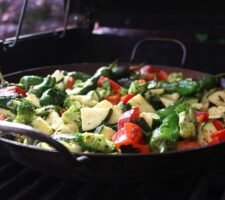
We’ve all heard how you should buy organic fruits and vegetables when you can, because of pesticides. But is it really necessary? Sometimes the price difference is a LOT. If you’ve ever stood in the produce aisle debating whether to splurge on organic strawberries, or reached for your peeler because you’re worried about pesticides, you’re not alone.
We all want to eat healthier and avoid unnecessary chemicals, but the truth is, it’s hard to know when peeling is enough and when organic is worth the extra cost.
This post will help you make informed, practical decisions without stressing over every apple or cucumber.
The Dirty Dozen: When It’s Best to Buy Organic
Each year, the Environmental Working Group (EWG) releases its Dirty Dozen list: fruits and vegetables with the highest levels of pesticide residue. If you’re going to spend a little extra on organic, these are the ones to prioritize:
- Strawberries
- Spinach
- Kale, collard & mustard greens
- Grapes
- Peaches
- Pears
- Nectarines
- Apples
- Bell & hot peppers
- Cherries
- Blueberries
- Green beans
Tip: These are often foods where we eat the skin or outer layer, so washing doesn’t always get rid of everything.
The Clean Fifteen: When Conventional Is Totally Fine
On the flip side, these fruits and vegetables tend to have the lowest pesticide levels and are generally safe to buy non-organic:
- Avocados
- Sweet corn
- Pineapples
- Onions
- Papayas
- Sweet peas (frozen)
- Asparagus
- Honeydew melon
- Kiwi
- Cabbage
- Watermelon
- Mushrooms
- Mangoes
- Sweet potatoes
- Carrots
Tip: Most of these have thick skins or protective outer layers we don’t eat, which helps reduce pesticide exposure.
Washing: How to Make Conventional Produce Safer
If organic isn’t in the budget or isn’t available, here’s how to make your fruits and veggies safer to eat:
- Rinse under cold running water while rubbing gently with your hands
- Use a vegetable brush for firmer produce (like cucumbers or potatoes)
- Soak produce in a mix of 1 part vinegar to 3 parts water for a few minutes, then rinse
This won’t eliminate all pesticides, but it does significantly reduce surface residues, as well as dirt, bacteria, and wax too.
When Peeling Helps
Peeling can reduce pesticide exposure, especially on conventionally grown apples, cucumbers, and potatoes. But keep in mind:
You’ll lose some fiber and nutrients in the process
You don’t have to peel everything…just the ones you’re more concerned about
Think of it as a trade-off: a little less nutrition in exchange for peace of mind.
Final Thoughts: Balance Over Perfection
Eating more fruits and vegetables – whether they’re organic, conventional, peeled, or not – is always a win. Do what works best for your body, budget, and lifestyle.
Whenever possible:
- Buy organic for the Dirty Dozen
- Wash produce thoroughly
- Peel when necessary, but not out of habit
Focus on making small improvements, not being perfect.


